Of all the tasks that our body does on a day-to-day basis, sleep is probably one of the more important, if not the most important, of all these activities. To prove the point several mythologies and religion point to specific deities that have power over sleep, like Hypnos from Grecian mythology and Imhotep from the Egyptian culture. These deities are revered over their abilities to affect sleep and dreams.
[the_ad_placement id=”in-text-1-type-r”]Sleep, defined, is the voluntarily recurring state of altered consciousness wherein our muscles are more relaxed and majority of our senses are turned off. Sleep usually begins when body systems slow down and our breathing becomes more relaxed. This triggers yawning as our body needs to get more oxygen in our body.
Unknown to some, sleep has several functions that are vital to our survival. Achieving the optimum amount of sleep helps you heal faster by directly affecting our immune system. During the REM stage of sleep, majority of bodily functions slow down and the energy conserved during this time is spent healing any injury and improving the immune system, helping us fight illnesses.
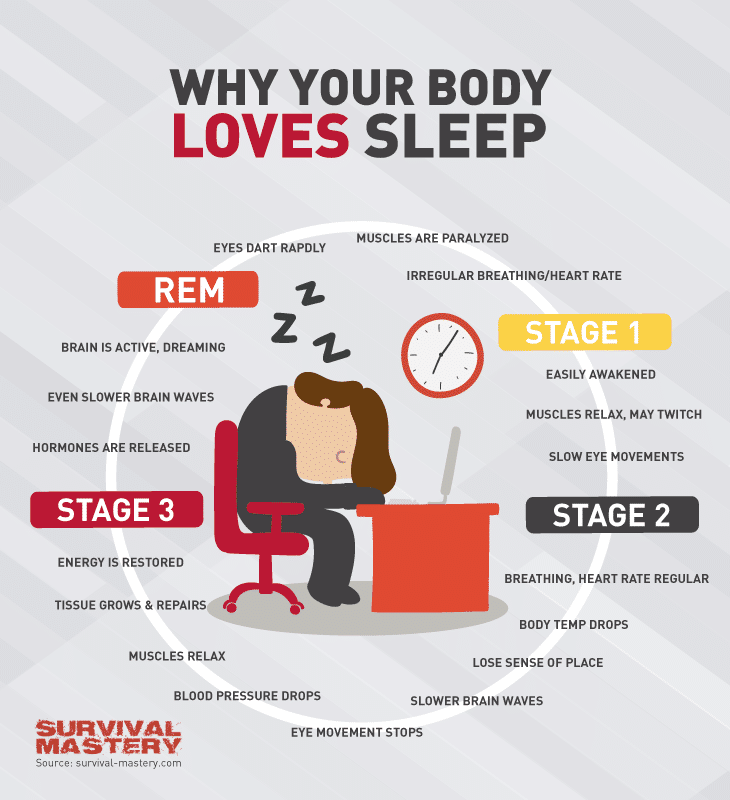
Memory is also greatly affected by sleep. Studies show that students who spent the whole night memorizing facts and data related to a subject the day do not retain as much information as those who studied for a while and spent longer time sleeping. Dreaming, a side-effect of sleep, also helps the brain process the events of the day before, subconsciously turning them into memories.
Sleeping is also one of the ways that our body protects itself from what is yet to come. A well rested body is able to cope with unexpected challenges and studies have shown that a person who has slept well is able to perform tasks better than those that are sleep-deprived or have experienced a poor quality of sleep. The same principle applies to another theory concerning energy conservation since sleeping allows the body to store energy within the cells for later use.
Myths and assumptions
Throughout the years, several myths and assumptions have come up about the different facets of sleep. Some have stemmed from culture and religion while some sprouted from old tales and outdated data.
Probably the most common of these is that we can always bank on sleep during the weekend and expend ourselves during the rest of the week. This is utterly untrue as our body is not equipped to accumulate sleeping hours and disburse it throughout the week. Some may claim that this works for them perfectly but in actuality, this ruins their circadian rhythm and makes it harder to get quality sleep during weekdays, even weekends.
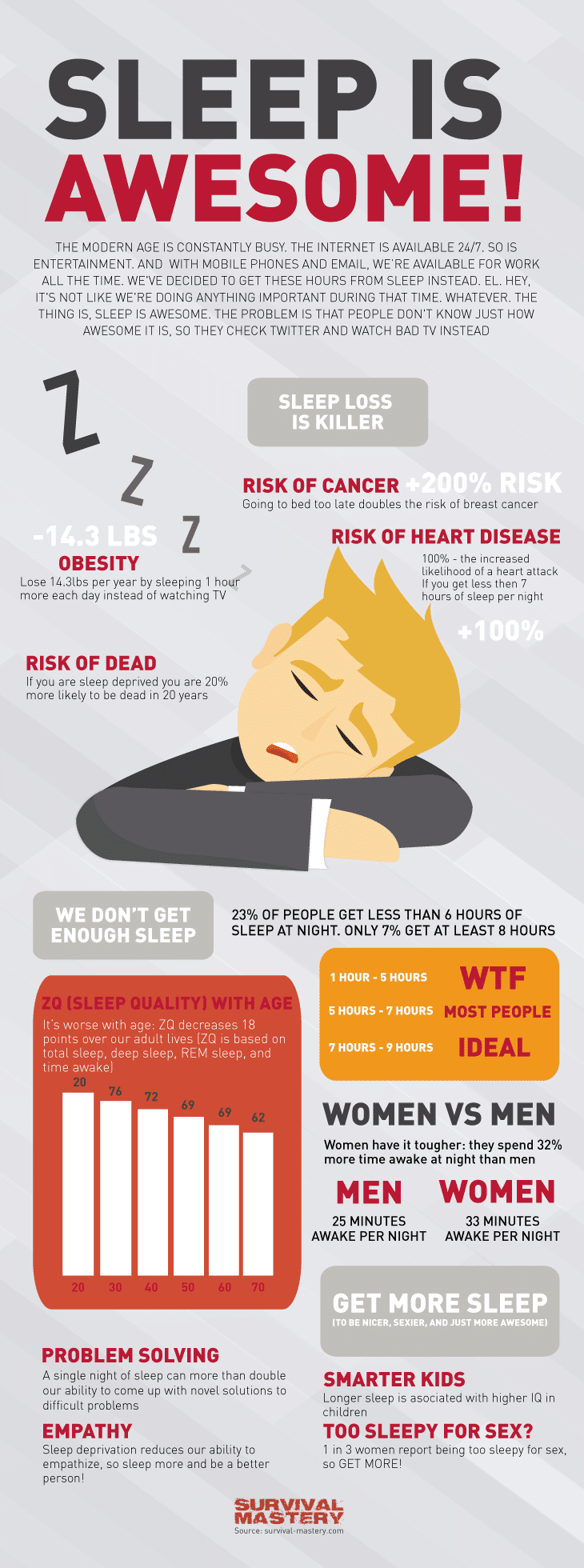
Circadian rhythms are present in most living things and the “rhythm” comes from an internal clock that allows better coordination of an organism’s biology and behavior during the day-night transition.
Sleeping less during the weekdays reconfigures the circadian clock and over sleeping during the weekend further worsens it. One might say that sleep until noon on Saturdays and Sundays but this pattern will cause them to be awake until the late hours of the same day, which defeats the fact of “banking” as it technically is business as usual.
Another myth that’s been circulating is that our bodies need a minimum of eight hours of sleep every single day. While this may be true to some, this is not always the case for most. We all have different sleeping patterns and behavior and ergo, different sleeping needs.
Children need an average of 10-12 hours of sleep as they need the rest to help their bodies develop further. Adults, on the other hand, would need about 7-9 hours of sleep per day but most adults claim to be able to survive their day-to-day transition with just four hours of sleep.
[the_ad_placement id=”in-text-2-type-r”]This is another myth that concerns sleep. People who claim this fact just aren’t aware of how sleepy they really are. This often reflects on how they perform their daily routine, most notably their inefficiencies in tasks that require advanced motor skills and judgment. Consistent lack of sleep also lowers the body’s immune system and attracts illnesses more than people who get the right amount of rest.
These illnesses are not often assumed by the general public to be directly correlated to the quality of sleep but, in actuality, they really are. This is another assumption that most people have. Illnesses like diabetes, hypertension, obesity, heart problems, and even psychological disorders like manic depression.
Another popular assumption that has sprung out during the past years is that once we sleep, our brain rests while our organs stop functioning. This is a very misleading conception about sleep as neurologists will argue that our body does rest but it doesn’t mean that it has stopped working. Our body is not a mechanism that stops when it is turns off, our organs will only do that when we’re dead.
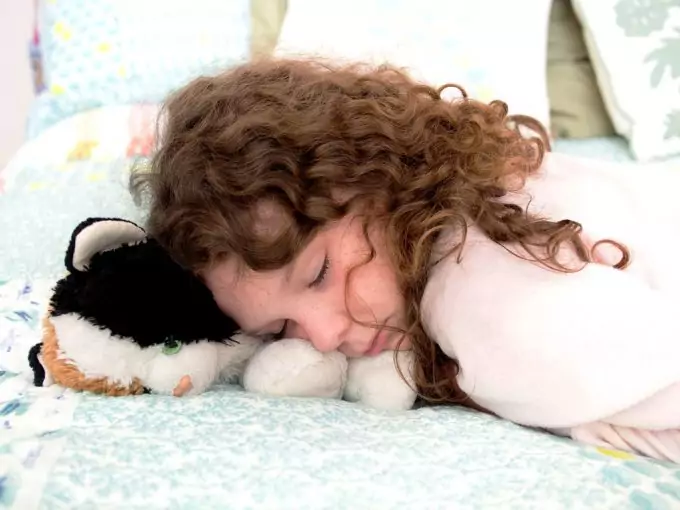
Our brains remain active during sleep and uses this period of “rest” to recharge the body and heal whatever illness or hurt we have. It also takes this chance to clear our system of wastes that will not be processed out while awake. These are called interstitial wastes which are chemical by-products of our neurological system.
Snoring is annoying true but it doesn’t mean that it’s harmless. This is a common trait among humans and considering it to be just an indication of a person’s level of tiredness is a grave assumption. Chronic snoring, often characterized as loud and continuous, can be a symptom of sleep apnea which, left undiagnosed, can pose a serious danger to you or someone you know.
Quality of sleep
To fully understand how much sleep one needs, we also need to understand several areas that are often equated to the quality of sleep. With the exception of risks related to ones medical condition, there are a couple of areas which we can address to help us sleep better.
Circadian Rhythm is probably the most important area we can and should improve on. This particular part of our neurological system helps the body copy with the day-night transition. Any imbalance to this “clock” will result to stress and loss of quality sleep. To find out how to combat anxiety naturally, read our article on this important topic.
To improve our circadian rhythm we need to find out what our rhythm is. Learn to track how sleepy you feel throughout the day. Any part of the day which shows an increase in dizziness means that those are hours where we need to add a 15-minute power nap. The higher the instance of sleepiness during the day also means that we are depriving ourselves of quality sleep. Our article on knowing your body will help you in your everyday challenges, do read it to know more.
This information may be used to determine what makes you sleepy, what habits make you sleep, what conditions need to be met for us to be able to catch those forty winks. Watching television before bedtime doesn’t work as most programs are aimed to stimulate our pleasure centers and will make us more awake than snooze off. Our TVs have better chances of snoozing than us.
Environmental conditions also play a part in letting us get quality sleep and this is probably the easiest to improve on since we only need to adjust those that affect us while we try to sleep.

Simple adjustments like buying a bed, and bedding’s, that suit our comfort needs, turning off the gadgets we own (put down that iPad!), turning off the lights or putting a night light on if you’re afraid of the dark, shutting the noise out will also help. You can buy specially designed earplugs if you need to.
There are some environmental factors that can affect the quality of our sleep but we have no way of adjusting them but there’s always a work-around to this. Factors like the weather and cultural activities can be addressed by adjusted the thermostat for the former or anticipating the heat and noise levels and moving away for a period of time.
Another factor we can consider in getting a good, long sleep is the quality of consumption that we have. If possible, try to avoid any food or drink that has sugar and/or caffeine before sleeping as these two stimulate our brains and provide more energy than what is needed before bedtime. There are some teas that can help you sleep long and good but these are a matter of taste. See our article on the many benefits of honey to give you more options.
Nightcaps often help one get a good night’s sleep but there are some alcoholic beverages that, in fact, do the reverse. Medications taken prior to bedtime also affect our sleeping pattern. Some medications have “uppers” which stimulate greater brain activity although there are some that can induce sleepiness, albeit at the most unfortunate of times.
Surviving deprivation
Knowing how much sleep you need is the first step in determining how you can survive sleep deprivation. Typical symptoms for sleep deprivation include clumsiness, fatigue, sudden changes in weight and a significant reduction in cognitive abilities and motor skills. There are other physiological effects of sleep deprivation but what is most important is that we know how we can survive going through a sleep deprived state.
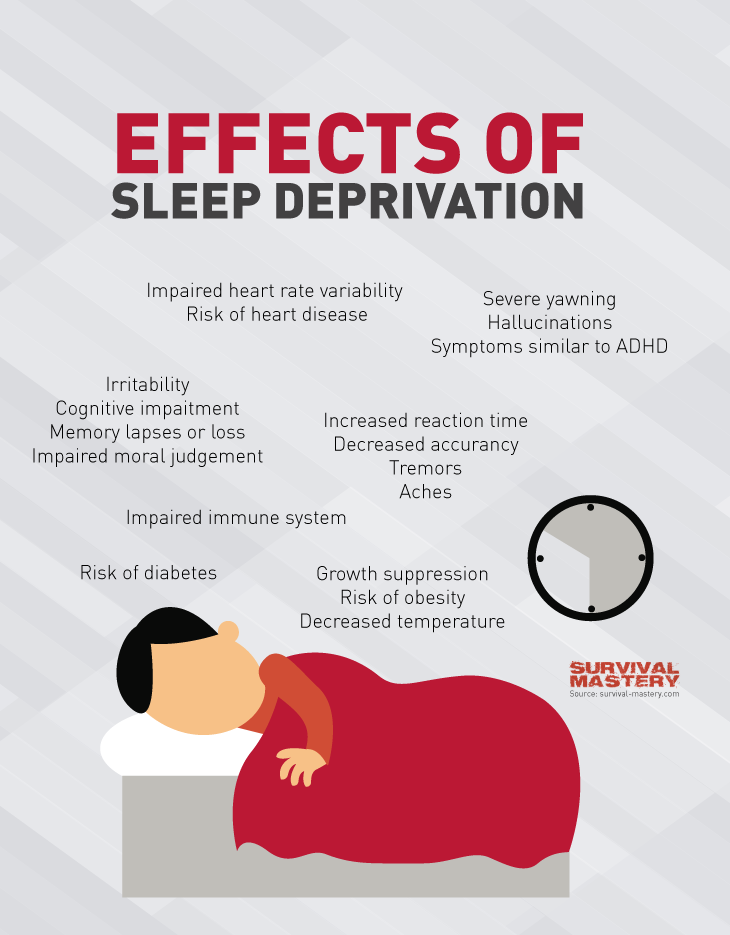
Experts agree that performing tasks that require attention and memory during a sleep deprived state often leads to unfortunate results. It doesn’t matter whether it’s creating business reports or cooking up with a great dish, as long as you are in a deprived state, do not expect the result to be what you want and at par with what you can do when you’ve had the right amount of sleep.
It has always been suggested that we delegate tasks that we can when we are sleep deprived to someone who can do it and do menial tasks instead. Doing so will help our body catch up on rest and will not agitate the part of the brain controlling attention and memory.
[the_ad_placement id=”in-text-3-type-r”]Driving while on a sleep-deprived state is also a big no, as to be an efficient defensive driver; we need to have our full attention on the road and traffic. Most vehicular accidents are often the result of drivers losing control of their vehicle because they fell asleep for a few seconds without them knowing it. Micro-sleep is a fairly unknown yet very common occurrence wherein one person experiences a short episode of sleep lasting from micro-seconds to a fill minute. This is an effect of sleep-deprivation and goes unnoticed until it becomes longer and more frequent.
Several experts also advise against doing any financial transactions while sleep deprived as might mistake a comma for a period, or a 3 for an 8. If possible, leave such tasks for another day or delegate it if you can.
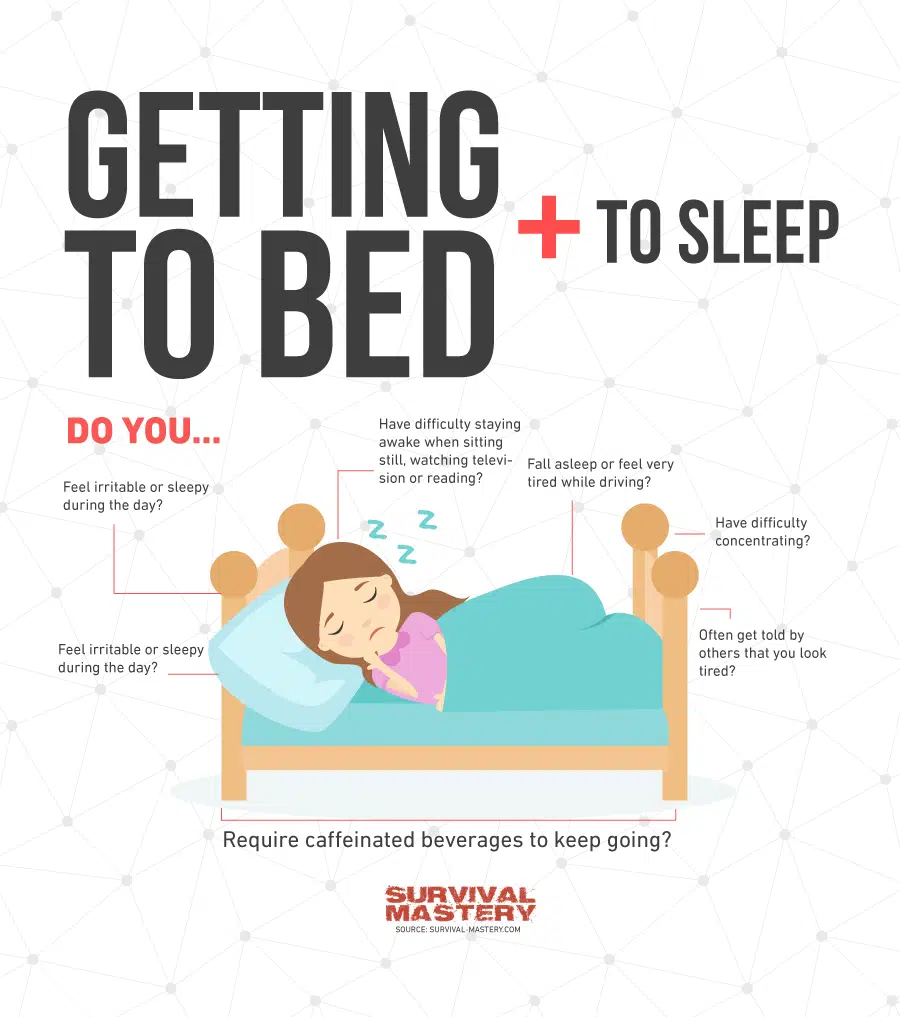
Tasks requiring fine motor skills should also be limited, or avoided entirely. These include running, biking, throwing, playing instruments and video games. Not only is the attention span while sleep deprived not up to the level that is needed but the muscles performing these activities also feel fatigued while sleep deprived.
So how much sleep do you need?
Based on statistical data, an adult needs 7-9 hours of sleep per day. This will be same target until we grow old and we may never be able to match this target but ensuring that we are rested during times of the day when we need it most will help us get over the pitfalls of sleep deprivation.

Lifestyle changes, modification of sleeping habits, adjustments to our physical surroundings and possible consultations with a licensed physician are sometimes necessary to help us sleep soundly in these modern times where distractions are the norm and sleeping is not as highly valued as before.
Check out our natural tips on how to sleep better to help you get a good night’s rest, it’s a must-read.






I actually like this article, thanks a lot! For me, it takes about 7 hours to sleep and to feel good. If I sleep more, I have a headache during the whole day… It’s good to go to bed before 00:00, but unfortunatelly we can’t always follow this simple rule :(
And one more thing – don’t drink too much water before going to sleep to avoid that awful bags under your eyes :)
Thank you for your tip, it also applies if you want to sleep like a baby – no trips to the bathroom
Hi! I would like to know if it is okay to sleep late, wake up early, and have a full 2 hours sleep in the afternoon?
Anyways, when I have a hard sleeping at night, I exercise, drink warm milk, and give myself a self-massage.
People have different sleeping patterns and I would suggest consulting your physician regarding this. I myself don’t see any problems with that but the body does need to rest continuously so you might be advised to sleep early and wake up early or try to have a longer sleeping time.
I find that 5-6 hours of sleep works just fine for me.
I try to avoid sleepless nights so getting on a regular sleeping schedule and doing everything I need to do during the day leaves me with only 5 hours every night.
Even when I do have time, I cannot make myself sleep more. Any tips for that?